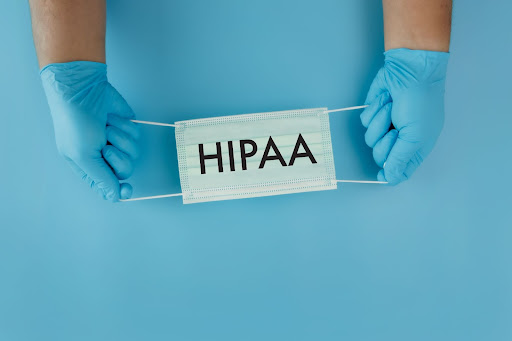
In today’s fast-evolving healthcare landscape, ensuring the security and privacy of patient data has become a paramount concern for healthcare providers and organizations alike. With the ever-increasing cyber threats, protecting electronic Protected Health Information (ePHI) is crucial to maintaining patient confidentiality and data integrity.
In this comprehensive guest post, we delve into the encryption requirements of a HIPAA compliant Virtual Private Network (VPN). We will explore the key aspects of HIPAA VPN requirements, the significance of encryption in safeguarding patient data, the benefits of using a HIPAA compliant VPN, the potential risks of non-compliant VPN solutions, and the essential steps for implementing a HIPAA compliant VPN in healthcare environments.
Understanding HIPAA VPN Requirements
While HIPAA regulations do not explicitly mandate VPN usage, they do emphasize the importance of implementing reasonable and appropriate safeguards for PHI protection. Encryption stands as a fundamental element in these technical safeguards, ensuring the security of ePHI both during transmission and while at rest.
Key HIPAA VPN Requirements include:
Encryption of ePHI in Transit: HIPAA compliant VPNs must ensure that all data transmitted between remote devices and the healthcare network is encrypted, thwarting unauthorized interception and snooping during transmission, thereby reducing the risk of data breaches.
Encryption of ePHI at Rest: A HIPAA compliant VPN should provide robust encryption for ePHI stored on servers, desktop files, USBs, and mobile devices. Even when data is not actively being transmitted, encryption maintains security and protection against unauthorized access.
Authentication and Access Control: HIPAA mandates VPN solutions to authenticate users and devices, ensuring only authorized individuals access PHI. Employing strong passwords and two-factor authentication enhances security.
Auditing and Monitoring: Implementing robust auditing and monitoring capabilities enables healthcare providers to promptly detect and respond to potential security incidents.
Choosing the Best VPN for HIPAA Compliance

Selecting an appropriate VPN solution is pivotal in maintaining HIPAA compliance. Crucial factors to consider include:
Strong Encryption Algorithms: Opt for VPN solutions that employ robust encryption algorithms, such as AES-256, to protect ePHI during transmission and at rest. AES-256 stands as one of the most secure encryption algorithms available today.
Authentication Mechanisms: Ensure the VPN supports strong authentication methods, such as two-factor authentication, to verify user identities and prevent unauthorized access.
Ease of Use: Choose a VPN solution with easy configuration to minimize misconfigurations and errors that could jeopardize security.
Auditing and Monitoring: Select a VPN with reliable auditing and monitoring capabilities to facilitate swift detection and response to potential security incidents.
Business Associate Agreement (BAA): Verify that the VPN service provider is willing to sign a BAA, which is a vital HIPAA compliance requirement outlining the service provider’s responsibilities regarding ePHI protection.
The Benefits of Using a HIPAA Compliant VPN in Healthcare
Embracing a HIPAA compliant VPN offers several advantages for healthcare providers:
Secure Remote Access to PHI: A HIPAA compliant VPN allows healthcare professionals to securely access patient data from remote locations, enhancing flexibility and productivity.
Compliance with HIPAA Regulations: VPN solutions adhering to encryption and technical safeguard requirements enable organizations to meet HIPAA compliance standards.
Reduced Risk of Data Breaches: VPN solutions encrypting data in transit and at rest mitigate the risk of data breaches and unauthorized access to sensitive patient information.
Improved Productivity: Secure remote access empowers healthcare providers to work efficiently, even outside healthcare facilities, thereby improving patient care and collaboration.
The Risks of Using Non-Compliant VPN Solutions in Healthcare

Non-compliant VPN solutions can expose healthcare providers to various risks, including:
Data Breaches: Inadequate encryption can lead to data interception, rendering PHI vulnerable to unauthorized access and potential data breaches.
Non-Compliance with HIPAA Regulations: Failure to meet HIPAA encryption requirements may result in non-compliance and potential fines or penalties.
Loss of Trust: Data breaches and non-compliance can erode patient trust and confidence in healthcare providers, harming the organization’s reputation.
Legal Liability: Healthcare organizations may face legal repercussions for security incidents resulting from non-compliant VPN solutions.
Implementing a HIPAA Compliant VPN Solution in Healthcare

Successfully implementing a HIPAA compliant VPN such as PureDome requires the following steps:
Conduct a Risk Assessment: Identify risks to PHI and vulnerabilities in the current VPN solution to guide the implementation process.
Select a HIPAA Compliant VPN: Choose a VPN solution that meets encryption and authentication requirements while aligning with the organization’s needs.
Configuration: Set up the VPN to comply with HIPAA regulations, including encryption and access control, and customize it to suit the organization’s workflow.
Education and Training of Employees: Educate staff on VPN usage, the importance of encryption, and the risks associated with non-compliance.
Auditing and Monitoring: Regularly audit and monitor the VPN solution to ensure continued compliance, promptly detect security incidents, and respond to any issues.
Why the HIPAA Encryption Requirements are Addressable
HIPAA encryption requirements, being an addressable implementation specification, offer some flexibility to covered entities and business associates. This means organizations are not mandated to implement encryption if they adopt an alternative measure that achieves an equivalent level of data protection. Nevertheless, the adequacy of the alternative measure must be thoroughly assessed and documented.
Frequently Asked Questions:
Is a 256-bit encryption mandated by HIPAA?
HIPAA does not specify a particular encryption strength. However, the National Institute of Standards and Technology (NIST) recommends AES-256, a 256-bit encryption algorithm, as one of the most secure options available.
Is encryption required for all types of electronic PHI under HIPAA?
Yes, HIPAA requires encryption for all electronic PHI, regardless of the specific data type. Encryption ensures the confidentiality and integrity of ePHI, protecting it from unauthorized access.
Is the encrypted email service provided by Office 365 HIPAA compliant?
Office 365 can be made HIPAA compliant when a Business Associate Agreement (BAA) is signed with Microsoft. The BAA outlines Microsoft’s responsibilities for protecting ePHI, ensuring compliance with HIPAA regulations.
You may be interested in: Comprehensive Guide About The Latest HIPAA Compliance Changes
from Health Archives - Market Business News https://ift.tt/2DRskpY
via IFTTT



0 Comments